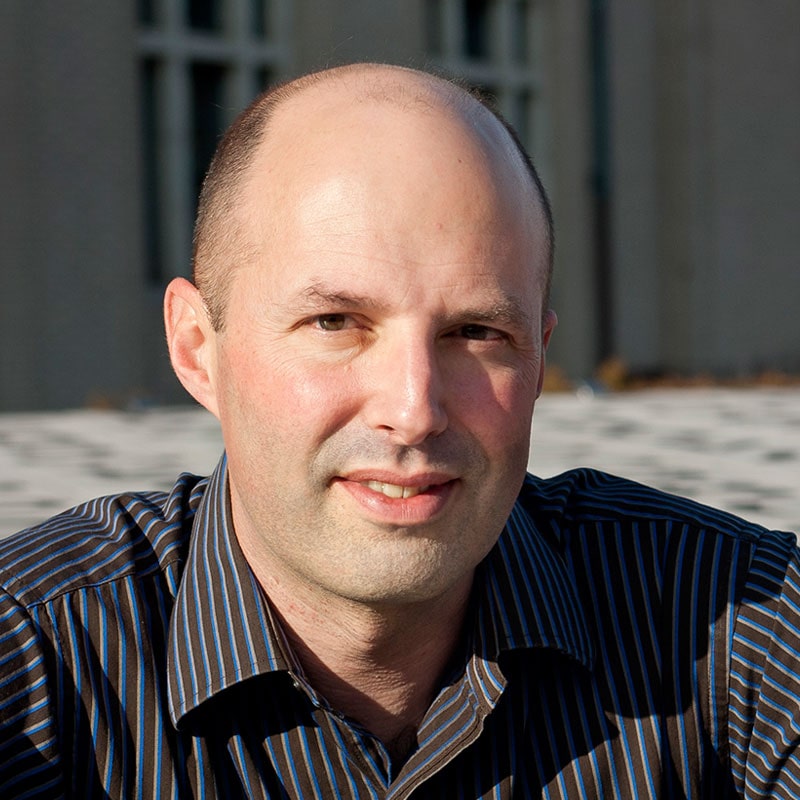Debunking Myths: Modern Native American Communities
A new Grand Challenge Seminar explores histories and modern realities of Native American communities.
By Marissa Pekular
As part of the Grand Challenge Seminar series, Dietrich College of Humanities and Social Sciences is offering “Native Americas: Facts and Fictions.” This course explores the history, perspectives and cultural expressions of Native populations across the Americas. It also challenges the stereotypes and falsehoods that relegated Indigenous people to the margins of society.
Paul Eiss, associate professor of history and anthropology, and Anne Lambright, head of the Department of Modern Languages and professor of Hispanic studies, created the course, hoping to bring a valuable, new perspective and set of knowledge to incoming CMU students. Eiss and Lambright address the class from different perspectives.
“I see college as a time to [expand] intellectual interests that you haven’t been able to explore,” said Lambright. “Students who come to the class have the opportunity to learn about the peoples, cultures and languages of the lands that they are currently inhabiting and to deepen their understanding of a really important part of the history of the Americas.”
Lambright, who is also a citizen of the Chickasaw Nation of Oklahoma, brings her identity into the discussions, especially for those issues that are associated with her tribe, her family and history.
Before this Grand Challenge Seminar was introduced this semester, no such course existed at CMU. One goal of this course is to challenge existing beliefs and myths concerning Indigenous populations. Often, the complexity and richness of hundreds of different Native cultures gets clumped together into a couple of different widely held stereotypes.
"I was concerned about the lack of presence of Native American studies at CMU," said Eiss. "I felt that teaching a Grand Challenge on this topic would be a great opportunity to encourage greater awareness of and interest in Native American history and issues among CMU students."
Not only does the course consider the histories and past experiences of Native populations, it also includes contemporary experiences and understandings of Indigenous cultures that are expressed in many mediums, from a Hulu series to novels to rap music.
“The subtitle for the course is facts and fictions,” said Lambright. “We use history and creative cultural production to challenge popular and dominant perceptions of Native peoples and demonstrate the rich complexity of different cultures.”
Because the course offers historical context and contemporary perspectives, students walk away with a holistic understanding of Native life and culture. This material can help students better understand and navigate what is happening in the world today.
“One of the topics we’re coving is the mobilization around the Dakota access pipeline,” said Eiss. “There is mobilization to try to block it from going through areas that could impact a variety of Native nations […] This is not just an event; this is hundreds of years of history that are coming to a head in a consequential way.”
Other contemporary topics include coverage of the 2020 Supreme Court case that concerned Native American sovereignty. The decision of McGirt v. Oklahoma ruled that a large portion of eastern Oklahoma will remain a reservation to the Creek Nation by a 5-4 vote. The course also covers the Indigenous language revitalization movement. This year kicked off the International Decade of Indigenous Languages (2022-2032) with the goal of promoting and preserving Indigenous languages while also addressing the human rights of Native people.
“The course certainly has changed my perspective,” said Anand Beh, a first-year student who enrolled in the course. “I didn't foresee that this course would help me with current events as much as it did.”
Beh has learned about how the federal government continues to violate historic treaties concerning land, reservation and environmental rights.
“Of all the Native land seized throughout the course of history, some of it is set aside by treaty to be retained by the Natives,” said Beh. “This land, much of it, is nevertheless occupied [by non-Native people] against the letter of the law [that sets the land aside for Indigenous communities].
Students also participated in a field trip to the Fort Pitt Museum and Heinz History Center to enhance the content discussed during the class. The students met with the museum directors, who led the class on private tour of the collections.
“I hope [the students] take away that if Native American people are not in the room, there is a problem,” said Eiss. “It is an important thing for Native people to be in the room and have a voice.”
This Grand Challenge course will be offered again in the fall 2022. Interested first-year students can register for the course in their SIO portal by entering the course number, 66-134, when planning their class schedule.

